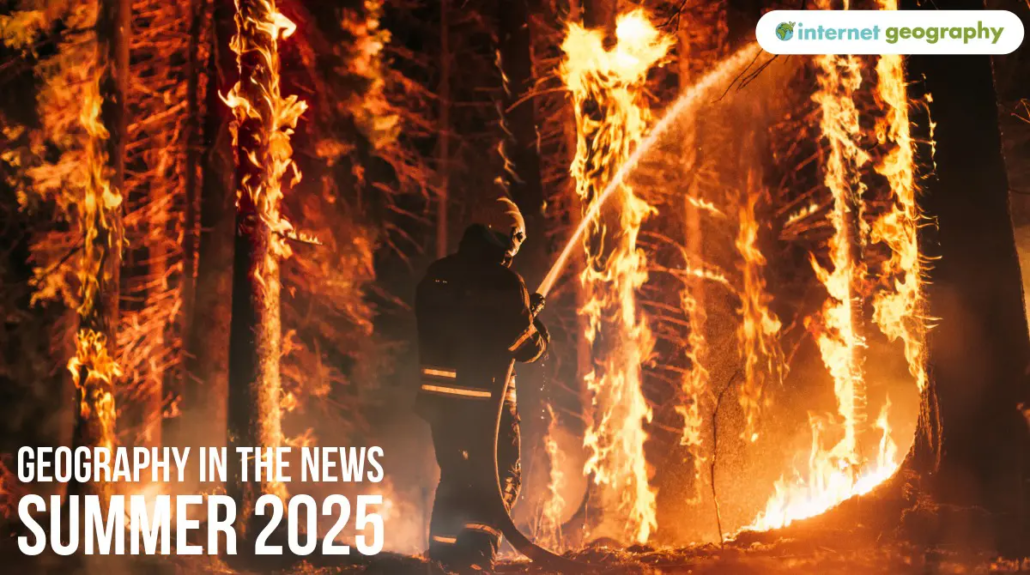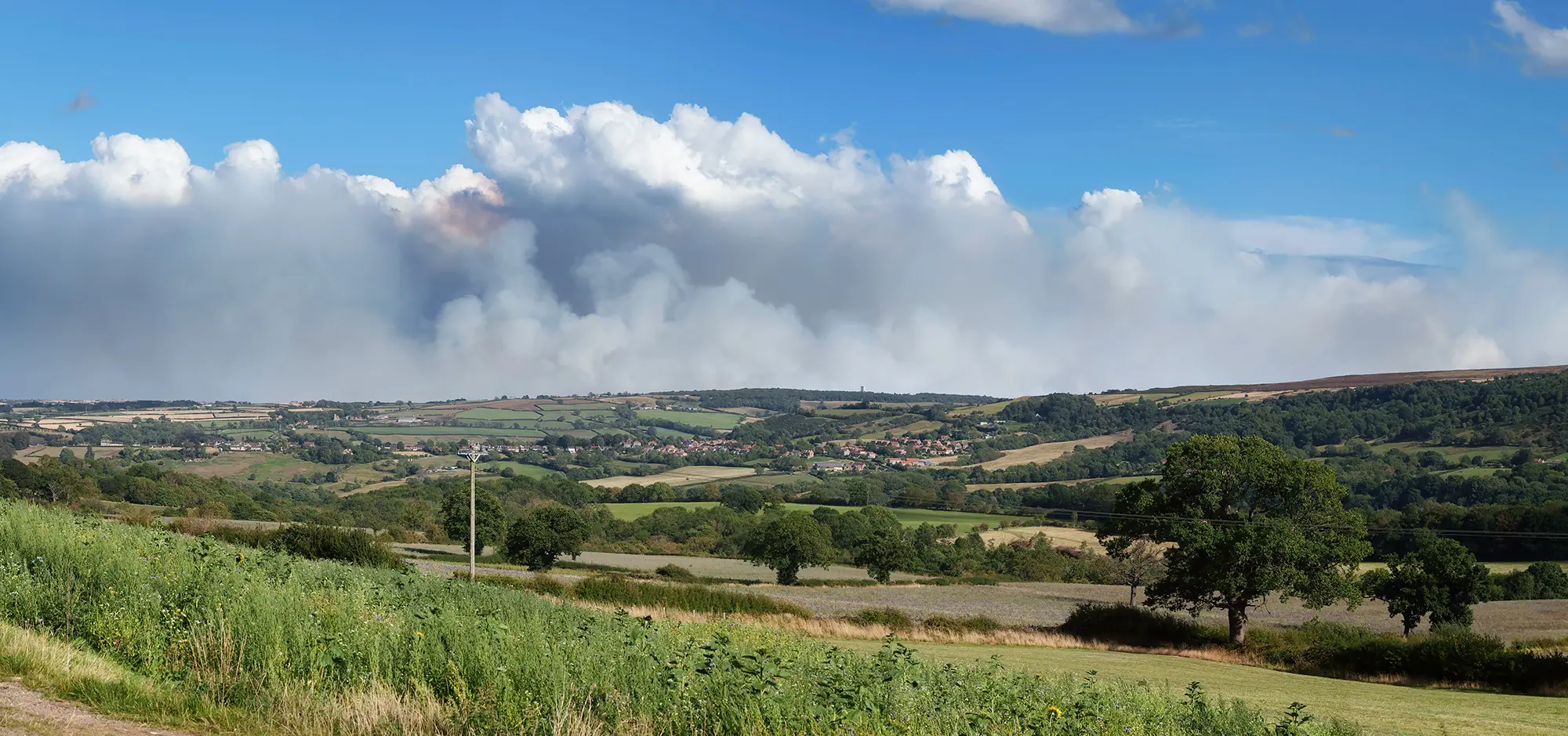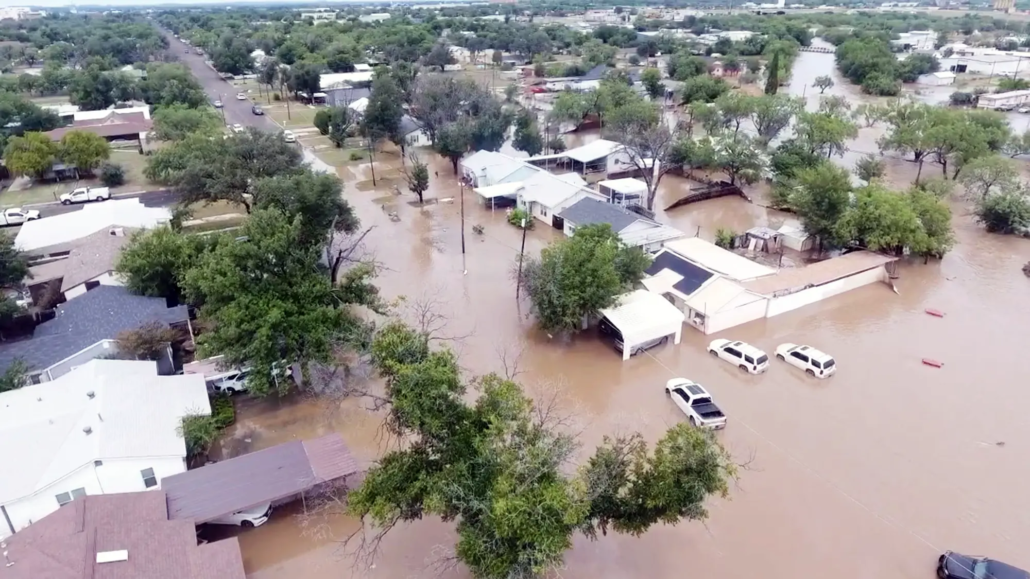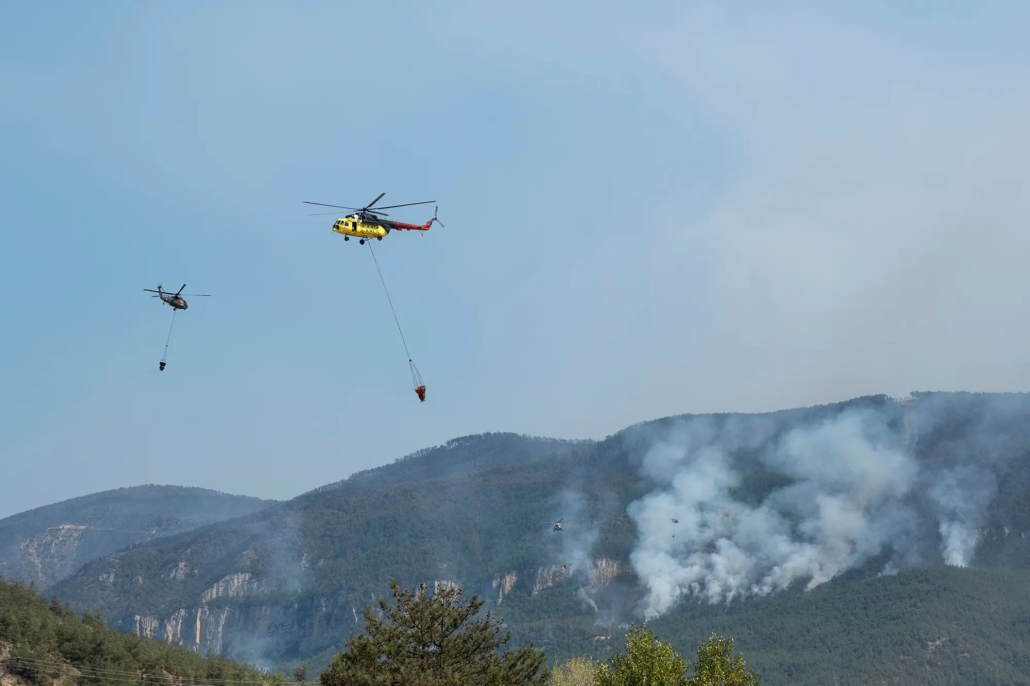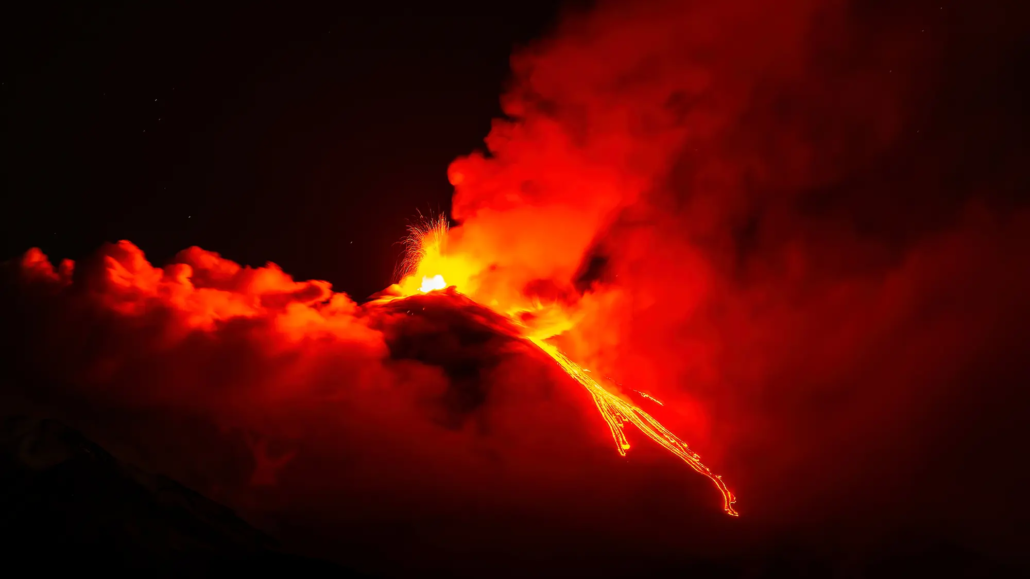This summer has witnessed a series of dramatic geography-related events worldwide, ranging from record-breaking heatwaves to devastating natural disasters. Here are some of the major stories that shaped Summer 2025.
UK records its hottest summer on record
The UK experienced its hottest summer since records began, with a mean summer temperature of more than 16°C between June and August. Four separate heatwaves left large areas of the country sweltering, and the prolonged dry conditions led to widespread hosepipe bans across southern and central England. Experts say the combination of unusually warm seas, dry soils, and persistent high-pressure systems made this summer exceptional.
Explainer: What is “mean summer temperature”?
- Each day, the Met Office records a maximum (daytime) temperature and a minimum (night-time) temperature.
- The daily mean is calculated as: (maxtemp + mintemp)÷2
- For the summer season (June–August), all the daily means are averaged to give the seasonal mean.
- This means the reported 16.13 °C for Summer 2025 includes both hot daytime highs and unusually warm nights.
- Warm nights are particularly important because they raise the seasonal mean and pose greater health risks, since people cannot cool down overnight.
Wildfire devastates the North York Moors
In August, a wildfire broke out on the North York Moors near RAF Fylingdales, burning around 25 km² of moorland. Fire crews worked tirelessly to contain the blaze, supported by local farmers who used machinery and water bowsers to help protect nearby land and livestock. Contractors also dug deep firebreaks to stop it from spreading further. The fire destroyed rare habitats and raised fresh concerns about how rising temperatures are making UK landscapes more vulnerable to wildfire.
Deadly floods in Central Texas
Heavy rainfall in early July caused catastrophic flooding along the Guadalupe River in Texas, USA. At least 135 people were killed, including campers at a summer retreat, making it one of the deadliest inland floods in US history. Survivors reported that warnings came too late, sparking calls for better emergency alert systems and flood planning. In response, Texas lawmakers have passed new safety measures, including stricter evacuation rules, upgraded flood monitoring, and new warning sirens. Officials hope that these laws will help prevent future tragedies of a similar scale.
Wildfires sweep across southern Europe
Southern Europe endured its worst wildfire season on record, with more than 1 million hectares of land destroyed in Greece, Turkey, Cyprus and other countries. Scientists say climate change made these fires up to ten times more likely and more intense than they would have been in the past. Entire communities were evacuated as flames threatened towns, farmland and tourist resorts.
Powerful earthquake strikes Afghanistan
On 31 August, a magnitude 6.0 earthquake struck eastern Afghanistan, destroying villages in Kunar and Nangarhar provinces. More than 1,400 people were killed, and thousands were injured. Rescue efforts have been slowed by rugged mountain terrain and a lack of resources, with international agencies warning of a worsening humanitarian crisis.
Surge in Mediterranean migration
The number of people attempting the dangerous crossing of the Mediterranean Sea increased again this summer. By mid-2025, more than 1,200 migrants had died or gone missing while trying to reach Europe from North Africa and the Middle East. Humanitarian organisations are urging governments to provide more search-and-rescue support to save lives.
India becomes the world’s most populous country
The United Nations confirmed that India has overtaken China as the most populous country, with a population of 1.46 billion people. This represents nearly 18% of the global population. India’s rapid population growth is creating both opportunities for economic development and challenges for managing resources, infrastructure and the environment.
Mount Etna erupts in a dramatic display
On 2 June 2025, Mount Etna in Sicily erupted, sending towering plumes of ash, gas, and rock several kilometres into the sky, a sight captured by European satellites. The eruption began when part of the volcano’s southeast crater collapsed, causing explosive activity and lava flows. Tourists nearby fled in panic, although thankfully, there were no reported injuries. Aviation authorities issued alerts, and while flights were delayed due to ash, the situation was contained, and volcanic monitoring remains high.
Why these stories matter
These events highlight how geography is more than just studying maps and landscapes; they also reveal the significance of understanding the world’s physical features. It is about understanding how physical processes and human decisions shape the world we live in. From climate change and natural hazards to migration and population change, geography is at the centre of many of the biggest news stories of summer 2025.

